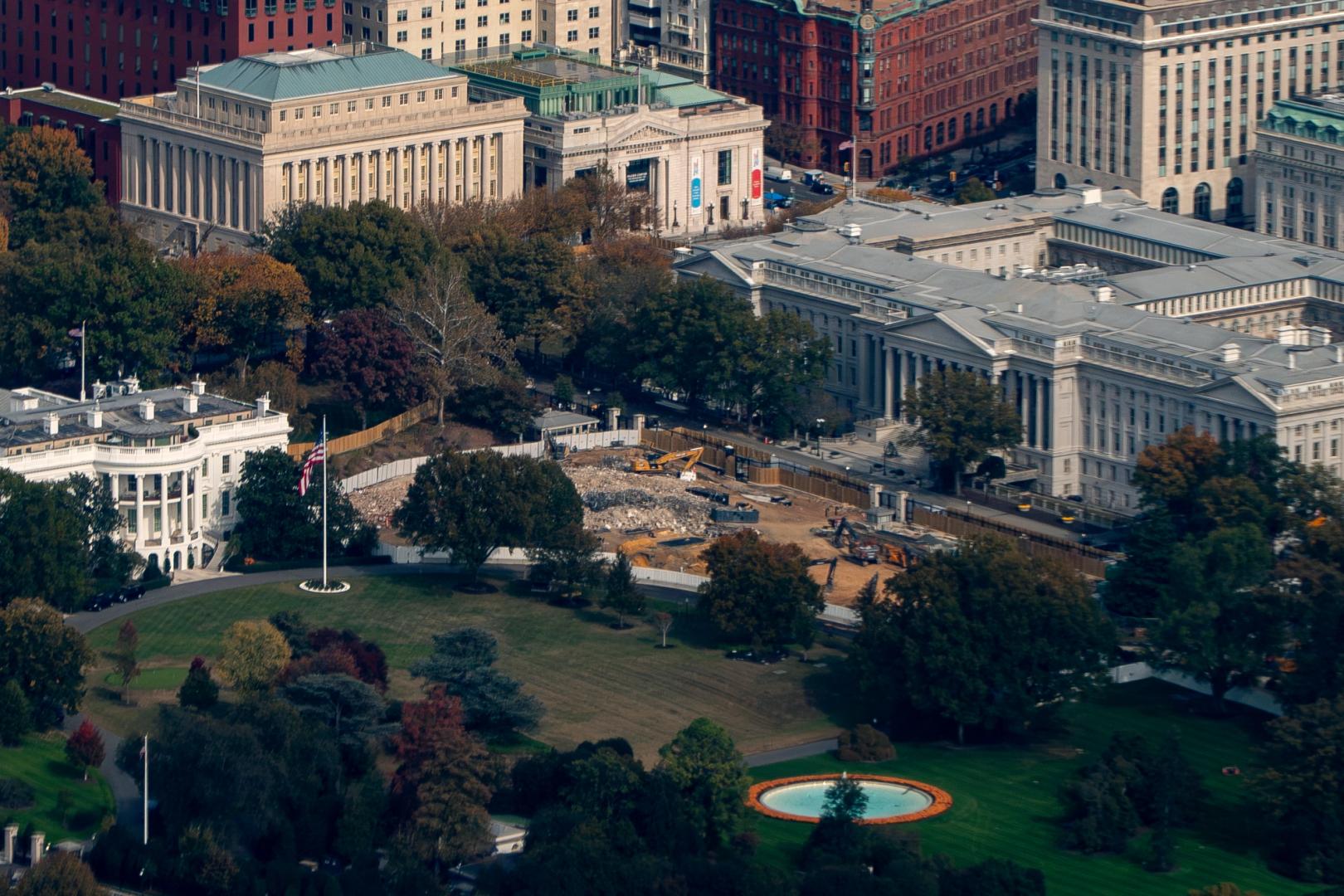
Some of the biggest names in the cryptocurrency sector are financing the contentious construction of the White House ballroom, which commenced recently with the demolition of the historic East Wing. While Democratic Senator Richard Blumenthal is requesting explanations of their involvement in the endeavor, many are shying away from public attention.
CoinDesk reached out to various crypto firms listed as Trump’s private-sector supporters for their feedback on their contributions and their plans to address the senator’s inquiry, but only a representative from Coinbase replied. Ripple, Tether, and Gemini, whose founders Tyler and Cameron Winklevoss have donated, remained unresponsive, despite receiving letters from Blumenthal, who leads the Senate’s Permanent Subcommittee on Investigations.
“Coinbase is happy to back the Trust for the National Mall, a 501(c)(3) partner of the National Park Service, and is eager to respond to the committee’s inquiries,” the company stated.
“Images of construction teams dismantling the most iconic residence in America have shocked the public and raised concerns among historians and preservationists about the potential loss of invaluable American heritage,” Blumenthal communicated to each company listed as a project donor. “Numerous questions persist regarding the size of each donation, the agreements made with each donor, and any commitments that may have been made in exchange for what are likely substantial contributions.”
Blumenthal’s letters dated October 24 were sent to many major corporations in the U.S., including leading tech firms like Apple, Amazon, Google, Microsoft, and others, along with tobacco companies, defense contractors, Caterpillar Inc., and numerous affluent individuals.
Leaders in the digital assets sector who received these requests must address inquiries about their interactions with the White House, how their donation amounts were determined, and whether they entered any formal agreements or written terms related to their contributions.
Crypto companies have aimed to foster close connections with the president, often channeling millions into projects closely associated with Trump, including his inauguration, presidential library, military parade, and the current project to create a large event space between the White House and the adjacent Department of the Treasury. The administration has visibly favored these financial backers, and Trump’s executive branch continues to actively pursue crypto policy goals.
However, the demolition of an entire wing of one of the world’s most recognizable buildings has sparked significant backlash, with critics asserting that the president has exceeded his authority. Attention has also focused on businesspeople reportedly contributing as much as $300 million for construction on the now-demolished site.
The nonprofit National Mall trust is managing the donations, with other entities typically involved in significant construction projects in Washington voicing opposition to the swift, unexpected demolition, including the National Trust for Historic Preservation, which unsuccessfully sought to prevent the project and ensure “the proposed ballroom plans undergo the legally required public review processes.”
Senate Democrats, including Senator Elizabeth Warren, questioned the trust and the National Park Service last week, stating in a letter that these “large donations to the Trust from entities with interests before the Trump Administration also raise concerns about adherence to the letter and spirit of the NPS’s donation rules, including indirect contributions through philanthropic partners like the Trust.”
After experiencing years of open skepticism from the U.S. government, crypto leaders such as Coinbase CEO Brian Armstrong and the Winklevoss twins from Gemini have frequently visited the White House, where Trump has hosted crypto events, including the signing of the Guiding and Establishing National Innovation for U.S. Stablecoins Act (GENIUS) Act into law. Following Tether’s struggle with U.S. investigations, CEO Paolo Ardoino became a celebrated guest of Trump.
Trump has faced ongoing allegations that his and his family’s cryptocurrency business interests represent a significant conflict of interest, with the president’s pro-crypto policies directly benefiting his wealth. His latest involvement in the sector included pardoning former Binance CEO Changpeng “CZ” Zhao, who briefly faced imprisonment and whose company is linked to one of Trump’s crypto initiatives: World Liberty Financial. On Tuesday, Reuters reported that the Trump family had garnered over $800 million in unrealized profits from its ventures in cryptocurrency.

